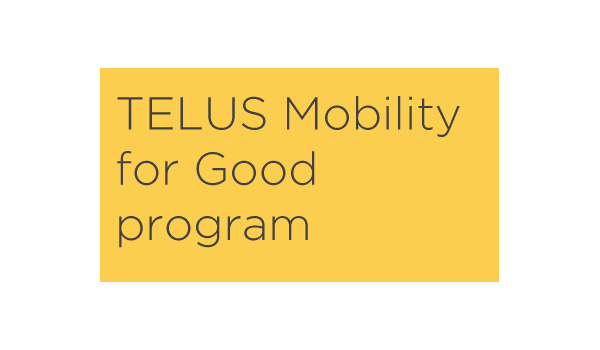(ANNews) – TELUS has launched a philanthropic pilot project designed to provide smartphones and phone plans to vulnerable, Indigenous women who are at risk or surviving violence. This year-long Mobility for Good, (M4G) program partners with five Alberta Native Friendship Centres across all points of the province to provide a critical lifeline to timely emergency services, reliable access to virtual healthcare and wellness resources and the ability to stay connected to friends, family and support networks.
Alberta Native Friendship Centres Association is one of the partners in this project. ANFCA Manager of Health, Wellness and Women’s Initiatives Jeanette MacInnis was an integral part of Alberta’s M4G rollout.
“The pandemic has caused some people to stay more isolated than they normally would,” explains MacInnis. “It’s a very challenging time to leave an abusive partner or leave a vulnerable circumstance, [but] this isn’t just about domestic violence.”
Explaining to TELUS that, given all the challenges the pandemic has exacerbated, it was clear domestic violence may be a narrow scope. “When we talked to TELUS we said, it has to be [broader] because we have a lot of Indigenous women and youth who are living in very vulnerable circumstances. Whether it’s intimate partner violence or housing insecurity, we needed to make sure they had access to, not only emergency services, but were able to connect with supportive services, to make sure they could do that safely.”
By leveraging technology to support Indigenous-led organizations and Indigenous led solutions, TELUS and ANFCA are, in part, advancing Reconciliation.
“TELUS is committed to doing our part to respond to the 231 Calls for Justice, specifically Call for Justice 15, by leveraging our technology to support Indigenous-led organizations and Indigenous-led solutions to advancing Reconciliation,” said Tony Geheran, TELUS Executive VP and Chief Customer Officer.
“Having a cellular device and reliable network is a vital lifeline to Indigenous women and girls at risk to get access to critical services and resources they need for their health, safety, and wellness. In partnership with Indigenous-led organizations, we hope to expand the reach and impact of our program across the country.”
The pandemic, however, continues to run interference as it hinders and isolates those that are already feeling alone. Half-way through the Alberta pilot, the five participating Friendship Centres have only distributed 30% of available phones.
“A lot of women aren’t coming into the Friendship Centres right now,” explains MacInnis, “So it’s hard to connect and know what a woman needs unless she actually comes in. It’s very hard for any woman, but particularly Indigenous women to walk into a Centre and say ‘I need help’. [They may] have a lot of trust and relationship with their local Friendship Centres, [but] it’s still a very complicated process for women to just say what they need.”
Alberta is starting to see the fourth wave of Covid-19 subside but Jeanette MacInnis fully expects the Alberta M4G pilot to experience its own wave. “As things start to open up, it’s important to keep in mind the Delta variant has hit Indigenous communities pretty hard. When [the pandemic slows], there’s going to be a wave of women coming forward seeking help; a wave of vulnerable women who have gone through so much during this pandemic that there will be a higher need for these resources including the phones.”
MacInnis explained how the constant messaging of women’s shelters filled and overflowing because of the overwhelming need and the whole social sector being overwhelmed with need, this may be yet another reason a lot of women are not coming forward, a fear of taking that step and being turned away. Having access to a free smartphone and plan will be one small tool that can break those feelings of being trapped and isolated by providing the means to reach out for specific support services.
“I’m really happy that TELUS has been such a great partner, not only in this initiative but other initiatives and I look forward to moving the conversation forward,” enthuses MacInnis. “Hopefully we will see the project continue and grow [as] I know it is growing across Canada.” MacInnis adds, “I also have to give props to our Friendship Centres that have been around for over 60 years. They have been front and center, helping urban Indigenous people throughout the pandemic. They are very busy and have done remarkable work.”
Women and youth living in one of the five pilot program areas, who are in need of the support the Mobility for Good program provides, please call or visit your local Friendship Centre:
Miywasin Friendship Centre in Medicine Hat (403) 526-0756; Aboriginal Friendship Centre of Calgary (403) 270-7379; Grand Prairie Friendship Centre (780) 532-5722; Red Deer Native Friendship Centre (403) 340-0020; and Hinton Friendship Centre Society (780) 865-5189.



Be the first to comment on "Telus and AFNCA launch Mobility For Good for Indigenous women at risk"